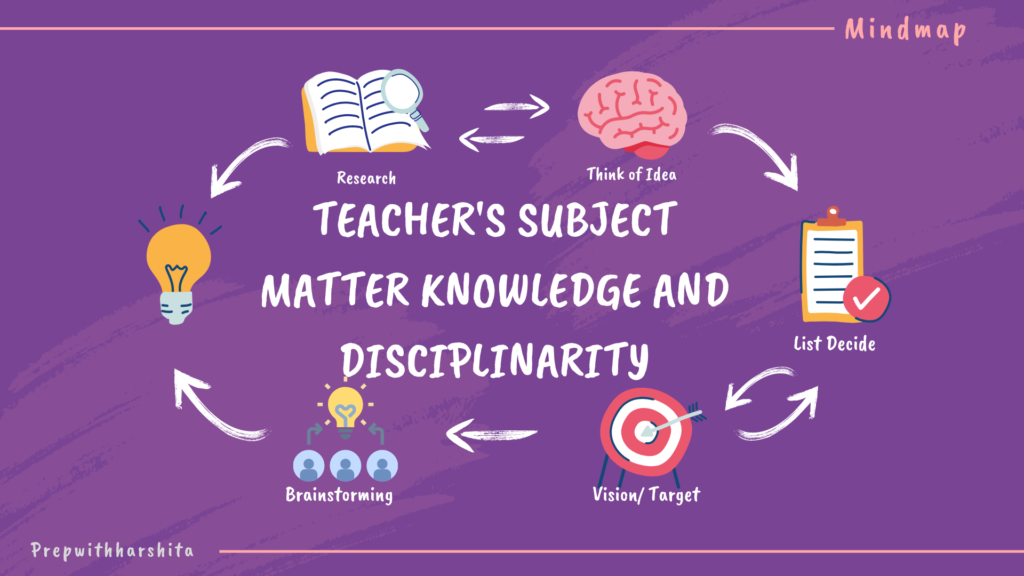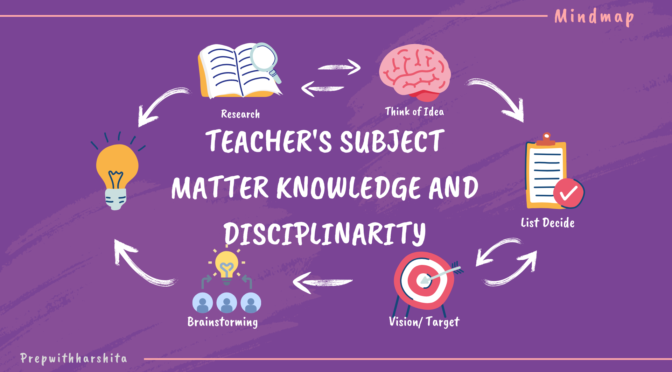Teacher subject matter knowledge refers to a teacher’s understanding and expertise in the content area they are teaching. It encompasses a deep knowledge of the subject matter, including its key concepts, theories, principles, and skills.
The subject matter knowledge of a teacher is essential for effective teaching and learning, as it allows them to provide accurate and comprehensive explanations, guide students’ learning, and facilitate meaningful discussions.
Disciplinarity, on the other hand, refers to the specific academic discipline or field of study in which a teacher possesses expertise. Disciplines can vary widely, ranging from mathematics and science to literature and history.
Each discipline has its own unique body of knowledge, methodologies, and ways of thinking. Teachers who have a disciplinary focus bring a specialized perspective and understanding of their subject, enabling them to delve deep into the subject matter and convey its intricacies to their students.
A teacher’s subject matter knowledge and disciplinarity are crucial for several reasons:
- Content Mastery: A teacher with strong subject matter knowledge has a thorough understanding of the content, enabling them to accurately explain complex concepts and provide clear examples. This expertise enhances their ability to address students’ questions and misconceptions effectively.
- Pedagogical Content Knowledge: Subject matter knowledge is intertwined with pedagogical content knowledge, which refers to the understanding of how to teach specific content to diverse learners. A teacher’s deep understanding of the subject allows them to identify common student misconceptions, select appropriate instructional strategies, and design meaningful learning experiences.
- Critical Thinking and Problem-Solving: Subject matter knowledge enables teachers to foster critical thinking and problem-solving skills in students. By presenting authentic and challenging problems within the discipline, teachers can guide students to analyze, evaluate, and apply their knowledge to real-world situations.
- Differentiation and Personalization: Teachers with strong subject matter knowledge can differentiate instruction to meet the diverse needs of students. They can provide additional resources, alternative explanations, and advanced content for students who require extra challenges, as well as scaffold instruction for those who need additional support.
- Facilitating Disciplinary Thinking: Teachers with disciplinarity understand the nature and processes of their discipline. They can guide students in thinking like a scientist, historian, mathematician, or artist, for example, by promoting inquiry, critical analysis, and creative problem-solving specific to the discipline.
- Curriculum Development and Assessment: Teachers with subject matter expertise can contribute to curriculum development within their discipline. They can align instructional goals with the broader aims of the subject area and design assessments that measure students’ understanding and mastery of the content.
In summary, teacher subject matter knowledge and disciplinarity are essential for effective teaching and student learning. They enable teachers to convey content accurately, promote critical thinking, personalize instruction, and foster disciplinary thinking.
By continuously expanding and refining their subject matter knowledge, teachers can enhance their instructional practice and make a significant impact on their students’ academic growth.
Also Read : Interdisciplinary Nature of Education

Also Visit : Prep with Harshita

